Your search “Keep%20the%20Death%20Penalty%20Abolished%20fin%20the%20Philippfines%20%20%20%20%20%20%20%20%20%20/page/www.humanrights.asia/resources/hrreport/2011/AHRC-SPR-008-2011/at_download/file ”
Document(s)
Law, society, and capital punishment in Asia
By David T. Johnson / Franklin E. Zimring / Punishment and Society, on 1 January 2008
2008
Article
Japan
More details See the document
Students of capital punishment need to study Asia, the site of at least 85 percent and as many as 95 percent of the world’s executions. This article explores the varieties of Asian capital punishment in two complementary ways. Cross-sectionally, the impression of uniformity that comes from classifying 95 percent of the population of Asia as living in executing states breaks down when closer attention is paid to the character of capital punishment policy within retentionist nations. Temporally, the general trajectory of capital punishment in the Asian region seems downward (though generalizations about patterns in this part of the world are undermined by significant data problems). Asia is also a useful territory for testing the generality of theories of capital punishment based on European experience. Looking forward, Japan and South Korea, two developed nations in Asia that still retain the death penalty, may indicate what other Asian nations are likely to do as they develop. Ultimately, Asia either will become a major staging area for world-wide abolition or the campaign against capital punishment will fail to achieve global status.
- Document type Article
- Countries list Japan
Article(s)
End the death penalty for drug-related offences
on 26 June 2009
June 26 is a world day of action against drugs. Several international NGOs have joined their voices to condemn the use of capital punishment against drug users and traffickers.
2009
China
Drug Offenses
Indonesia
Viet Nam
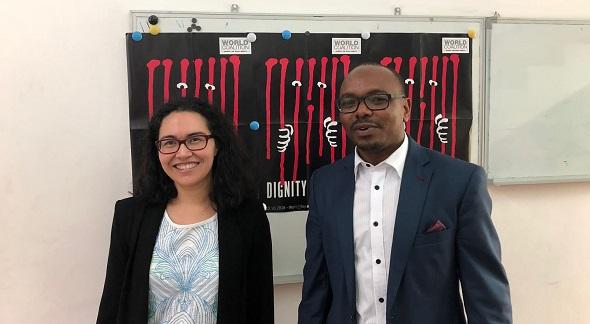
Article(s)
Hope resonates globally on World Day against the Death Penalty
By Nicolas Chua, on 25 October 2018
On 10 October 2018, abolitionist forces around the world celebrated the 16th World Day against the Death Penalty in a flurry of diverse activities and events meant to raise awareness on living conditions on death row. Activists in every continent mobilized civil society, challenged governments and reached out to the general public in a collective effort to promote and advance the common goal of universal, worldwide abolition of the death penalty.
2018
Death Row Conditions
Article(s)
China refuses to consider 250,000-strong petition
on 16 June 2008
A World Coalition delegation found the door closed on June 16 when they attempted to handover to the Chinese Liaison Office in Hong Kong a petition urging for changes in the death penalty system in China.
2008
China
Fair Trial
Innocence
Moratorium
Document(s)
The Death Penalty for Drug Crimes in Asia
By World Coalition Against the Death Penalty / Fédération Internationale des Ligues des Droits de l'Homme (FIDH), on 1 January 2015
2015
NGO report
More details See the document
The report, published for the 13th World Day against the Death Penalty, analyzes how the death penalty is applied for drug-related crimes in Asia, evaluates the most common arguments used by governments to justify their use of this inhumane and illegal measure, and exposes why these arguments are unjustified. Asia is the continent that executes the most people for drug-related crimes. However, the death penalty has not proven to be effective in reducing drug crimes in Asia.
- Document type NGO report
- Themes list Drug Offences, Country/Regional profiles,
Document(s)
The Illusion of Heightened Standards in Capital Cases
By Anna VanCleave, University of Connecticut - School of Law, on 25 January 2024
2024
Article
Fair Trial
United States
More details See the document
Published on April 3, 2023.
The death penalty has gained its legitimacy from the belief that capital prosecutions are more procedurally rigorous than noncapi-tal prosecutions. This Article reveals how a project of heightened capital standards, set in motion when the Supreme Court ended and then revived the death penalty, was set up to fail.
In establishing what a constitutional death penalty would look like, the Court in 1976 called for heightened standards of reliability in capital cases. In the late 1970s and early 80s, the Supreme Court laid out specific constitutional procedures that must be applied in capital cases, and left the door open for the Eighth Amendment to do even more. In the decades that followed, state and federal courts have fueled a perception of heightened procedural rigor in capital cases by referring repeatedly to the heightened standards applica-ble in capital cases.
- Document type Article
- Countries list United States
- Themes list Fair Trial
Document(s)
Add Resources and Apply Them Systemically: Governments’ Responsibilities Under the Revised ABA Capital Defense Representation Guidelines
By Eric M. Freedman / Hofstra Law Review, on 1 January 2003
2003
Article
United States
More details See the document
The mainstream legal community, including the ABA, has long understood the importance of system-building, but the revised Guidelines state the point especially forcefully. In articulating “the current consensus about what is required to provide effective defense representation in capital cases,” they set high performance standards not just for lawyers, but for death penalty jurisdictions. As the problems are systemic, it is “imperative” that the solutions be.The Guidelines accordingly not only call on governments to deliver capital defense resources that are sufficient in amount, but also furnish the states with a user-friendly blueprint for using those resources wisely to create structures that will function well in the present and evolve effectively over time. This mandate for institution-building is welcome, and the states should lead it. Indeed, they must do so if the Guidelines are to achieve their ameliorative purposes and avoid becoming just a collection of lofty aspirations “‘that palter with us in a double sense, that keep the word of promise to our ear, and break it to our hope”.
- Document type Article
- Countries list United States
- Themes list Legal Representation,
Document(s)
Indonesian : KETIDAKADILAN YANG MEMATIKAN DI ASIA Akhiri peradilan yang tidak adil, hentikan eksekusi
By Amnesty International / Anti-Death Penalty Asia Network, on 8 September 2020
2020
NGO report
enenenenenenenenzh-hantMore details See the document
Lebih banyak orang yang dieksekusi mati di kawasan Asia-Pasifik dibandingkan dengan gabungan jumlah hukuman mati di kawasan lain di dunia. Ditambah lagi adanya kemungkinan bahwa mereka dieksekusi hukuman mati setelah melalui sebuah peradilan yang tidak adil, maka ketidakadilan yang sangat besar dari hukuman ini menjadi semakin jelas.
- Document type NGO report
- Themes list Fair Trial,
- Available languages Korean : 아시아에서의 치명적 불의 불공정 재판을 멈춰라, 사형집행을 중단하라.Thai : การประหารชีวิตที่อยุติธรรม ในภูมิภาคเอเชีย ยุติการพิจารณาคดีที่ไม่เป็นธรรม ยกเลิกการประหารชีวิตUrdu : یفاصناان کلہم ںیم ایشیا ںیرک متخ توم ےازس ،دنب تامدقم ہنافصنمریغTagalog : NAKAMAMATAY NA KAWALAN NG KATARUNGAN SA ASYA Itigil ang Di Makatarungang paglilitis, Itigil ang PagbitayMongolian : АЗИ ТИВ ДЭХ ЭНЭРЭЛГҮЙ ШУДАРГА БУС ЯВДАЛ Шударга бусaap шүүх явдлыг зогсоож, цаазын ялыг халъяJapanese : 不当に奪われる生命 ~アジアにおける不公正な裁判を止め、 死刑執行の停止を~Hindi : एशिया में घातक अन्याय: समाप्ति अनुचित परीक्षण, सज़ाएँ बंद करोLethal Injustice in Asia: End unfair trials, stop executions亚洲的致命不公: 终止不公审判,停止处决
Document(s)
Abolitionnist portrait
By World Coalition against the death penalty , on 10 October 2004
2004
Campaigning
Trend Towards Abolition
frMore details See the document
Abolitionnist portrait
- Document type Campaigning
- Themes list Trend Towards Abolition
- Available languages Portrait d'abolitionnistes
Document(s)
Lebanon – Committee on the Elimination of Discrimination Against Women – Death Penalty
on 12 January 2022
2022
NGO report
World Coalition
Lebanon
Women
More details Download [ pdf - 1599 Ko ]
This report addresses Lebanon’s compliance with human rights obligations under the Convention on the Elimination of All Forms of Discrimination Against Women regarding its use of the death penalty.
Lebanon has not abolished the death penalty or established a de jure moratorium on the death penalty. The legal system does not protect women in conflict with the law from discrimination on the basis of sex or gender. Nor does it limit capital offenses to the “most serious” crimes.
Women migrant domestic workers appear to be at an elevated risk of being sentenced to death. Indeed, all three women known to be on death row in Lebanon are Sri Lankan migrant domestic workers. Such women face heightened obstacles to realizing their right to a fair trial. Moreover, there is no evidence that sentencing authorities take into account a woman’s history of abuse when determining an appropriate sentence. Finally, women under sentence of death face degrading conditions of detention.
- Document type NGO report / World Coalition
- Countries list Lebanon
- Themes list Women
Document(s)
Getting to Death: Race and the Paths of Capital Cases after Furman
By Fagan, Jeffrey and Davies, Garth and Paternoster, Raymond, Columbia Public Law Research Paper, Forthcoming, Cornell Law Review, Vol. 107, No. 1565, 2022, on 13 January 2023
2023
Academic report
Fair Trial
United States
More details See the document
Decades of research on the administration of the death penalty have recognized the persistent arbitrariness in its implementation and the racial inequality in the selection of defendants and cases for capital punishment. This Article provides new insights into the combined effects of these two constitutional challenges. We show how these features of post-Furman capital punishment operate at each stage of adjudication, from charging death-eligible cases to plea negotiations to the selection of eligible cases for execution and ultimately to the execution itself, and how their effects combine to sustain the constitutional violations first identified 50 years ago in Furman. Analyzing a dataset of 2,328 first- degree murder convictions in Georgia from 1995–2004 that produced 1,317 death eligible cases, we show that two features of these cases combine to produce a small group of persons facing execution: victim race and gender, and a set of case-specific features that are often correlated with race. We also show that these features explain which cases progress from the initial stages of charging to a death sentence, and which are removed from death eligibility at each stage through plea negotiations. Consistent with decades of death penalty research, we also show the special focus of prosecution on cases where Black defendants murder white victims. The evidence in the Georgia records suggests a regime marred less by overbreadth in its statute than capriciousness and randomness in the decision to seek death and to seek it in a racially disparate manner. These two dimensions of capital case adjudication combine to sustain the twin failures that produce the fatal lottery that is the death penalty.
- Document type Academic report
- Countries list United States
- Themes list Fair Trial
Document(s)
Indonesian – Laporan Global Amnesty International : hukuman mati dan eksekusi 2023
on 29 May 2024
2024
NGO report
Trend Towards Abolition
More details Download [ pdf - 897 Ko ]
Pemantauan yang dilakukan oleh Amnesty Internasional terhadap hukuman mati secara global
mencatat terdapat 1.153 eksekusi hukuman mati pada tahun 2023. Angka tersebut menunjukkan
adanya peningkatan sebanyak 31% dari 883 eksekusi pada tahun 2022. Namun, ada penurunan
yang signifikan pada angka negara yang menerapkan hukuman mati. Dari 20 negara pada 2022
menjadi hanya 16 negara di 2023
- Document type NGO report
- Themes list Trend Towards Abolition
Document(s)
ULUSLARARASI AF ÖRGÜTÜ KÜRESEL RAPORU ÖLÜM CEZALARI VE İNFAZLAR 2022
By ULUSLARARASI AF ÖRGÜTÜ, on 16 May 2023
2023
NGO report
More details See the document
Bu rapor, Ocak-Aralık 2022 dönemi için ölüm cezasının adli kullanımını kapsamaktadır. Uluslararası Af Örgütü yalnızca infazlar, ölüm cezaları ve ölüm cezasının kullanımına ilişkin diğer hususlar (cezanın hafifletilmesi ve beraat gibi) hakkında makul teyitlerin olduğu durumlarda raporlama yapmaktadır. Birçok ülkede hükümetler ölüm cezasının kullanımına ilişkin bilgi yayınlamamaktadır.
- Document type NGO report
Document(s)
Gender Matters: Women on Death Row in the United States
By Sandra Babcock, Nathalie Greenfield, Kathryn Adamson, Cardozo Law Review , on 24 April 2024
2024
Academic report
Gender
United States
Women
More details See the document
This article presents a comprehensive study of 48 persons sentenced to death between 1990 and 2023 who presented as women at the time of their trials. This research is the first of its kind to conduct a holistic and intersectional analysis of the factors driving women’s death sentences. It reveals commonalities across women’s cases, delving into their experiences of motherhood, gender-based violence and prior involvement with the criminal legal system. This report also explore the nature of the women’s crimes of conviction, including the role of male co-defendants and the State’s use of aggravating factors. Finally, it reveals for the first time the extent to which capital prosecutions are dominated by men—including judges, elected District Attorneys, defense attorneys, and juror forepersons—and explain why gender matters in determining who lives and who dies
- Document type Academic report
- Countries list United States
- Themes list Gender / Women
Document(s)
The Death Penalty in 2022: Year End Report
By Death Penalty Information Center, on 16 December 2022
2022
NGO report
United States
More details See the document
In a year awash with incendiary political advertising that drove the public’s perception of rising crime to record highs, public support for capital punishment and jury verdicts for death remained near fifty-year lows. Defying conventional political wisdom, nearly every measure of change — from new death sentences imposed and executions conducted to public opinion polls and election results — pointed to the continuing durability of the more than 20-year sustained decline of the death penalty in the United States.
The Gallup crime survey, administered in the midst of the midterm elections while the capital trial for the 2018 mass shooting at Marjory Stoneman Douglas High School in Florida was underway, found that support for capital punishment remained within one percentage point of the half-century lows recorded in 2020 and 2021. The 20 new death sentences imposed in 2022 are fewer than in any year before the pandemic, and just 2 higher than the record lows of the prior two years. With the exception of the pandemic years of 2020 and 2021, the 18 executions in 2022 are the fewest since 1991.
- Document type NGO report
- Countries list United States
Document(s)
Women and The Death Penalty in Kenya: Essays on the Gendered Perspective of the Death Penalty
on 2 February 2024
2024
NGO report
Death Row Conditions
Fair Trial
Gender
Kenya
Women
More details See the document
This publication seeks to make visible the gender and intersectional discrimination faced by women in the judicial process leading to the death penalty. Through the various articlesin this publication, the authors bring to light the reality of women facing the death penalty through a different lens.
The first author, Shekinah Bright Kiting’a, in making a compelling case for abolition of the death penalty, explores how the death penalty uniquely affects women in the context of motherhood. Further, she highlights the rights and well-being of the children affected by their mothers’ death sentences, revealing flaws in our legal and ethical systems. With the overall aim of advocating for its abolition due to its significant impact on both parenthood and children’s rights, her article seeks to push for reforms that honour motherhood and prioritize children’s well-being in these difficult circumstances.
Kenaya Komba dissects gender disparity in the judicial system by exploring the intersection of domestic violence and the death penalty. In making a case for a restorative approach to justice, her article analyses the impact of capital punishment on victims of domestic violence and the systemic injustice and biases they continue to grapple with. Her elaborate analysis of the Constitution of Kenya, 2010 and the Protection Against Domestic Violence Act, 2016, highlights the urgent need for reform in the legal system.
While Analyzing the role the media plays in shaping perceptions of women on death row, Patricia Chepkirui evaluates the implications of positive and negative media portrayals of such women by highlighting the ethical responsibilities of media in the coverage of women on death row cases. The article ultimately underscores the significance of responsiblemedia coverage in ensuring that media exposure of cases of women on death row is fair,balanced, and respectful of their rights and dignity.
Alex Tamei delves into the intricacies of abuse, gender-based violence, and trauma as mitigating factors in death penalty sentencing for women. His article comparatively analyses two Kenyan cases of murder in retaliation to intimate partner violence, seeking to shed light on the plight of victims of gender-based violence. The article effortlessly brings out the nexus between the death penalty and intimate partner violence and makessolid recommendations for change.
The fifth author, Patience Chepchirchir, delves into the nexus between psychological abuse and provocation. Through her article, she brings out the scope of psychological abuse while focusing on the linkage between emotional abuse and provocation and how the same can be considered as mitigating factors. Through an elaborate analysis of case law, she makes a case for psychological abuse of women as a mitigating circumstance during sentencing.
Stella Cherono’s article reflects on the intersectional discrimination faced by women in the criminal trial process leading to death row. The article highlights the complex and overlapping forms of discrimination women experience during the pretrial, trial and sentencing stages. Through her comprehensive analysis of gendered pathways to offending and imprisonment, she challenges how society perceives discrimination.
Loraine Koskei Interrogates the emerging jurisprudence on Intimate Partner Violence.Her article lays out the gendered factor in the commissioning and sentencing of women convicted of murder and offers possible recommendations.
- Document type NGO report
- Countries list Kenya
- Themes list Death Row Conditions / Fair Trial / Gender / Women
Document(s)
The Death Penalty in the OSCE Area: Background Paper 2020
By Organization for Security and Co-operation in Europe (OSCE), on 9 October 2020
2020
Regional body report
Belarus
United States
ruMore details See the document
This paper updates The Death Penalty in the OSCE Area: Background Paper 2019. It is intended to provide a concise update to highlight changes in the status of the death penalty in OSCE participating States since the previous publication and to promote constructive discussion of the issue. It covers the period from 1 April 2019 to 31 March 2020. Special Focus: Is the death penalty inherently arbitrary?
- Document type Regional body report
- Countries list Belarus / United States
- Available languages Смертная казнь в регионе ОБСЕ: Справочный документ 2020 года
Document(s)
ENHANCING EU ACTION ON THE DEATH PENALTY IN ASIA
By Roger Hood / European Parliament / DIRECTORATE-GENERAL FOR EXTERNAL POLICIES OF THE UNION, on 1 January 2012
2012
Article
More details See the document
This paper has three objectives. First, it provides an analysis of the state-of-play regarding the death penalty in Asia. Second it reports on EU human rights dialogues. Third, it suggests policies that might help to support initiatives in Asian countries aimed both at restraining the use of the death penalty and securing its complete abolition.
- Document type Article
- Themes list Trend Towards Abolition, Country/Regional profiles,
Document(s)
Taiwan: Amicus Curiae submission by Amnesty International and the World Coalition Against the Death Penalty to the Constitutional Court
By Amnesty International, on 23 April 2024
2024
NGO report
Taiwan
zh-hantMore details See the document
Published on April 8, 2024.
As the Constitutional Court of the Republic of China considers a challenge to the constitutionality of the death penalty, Amnesty International Taiwan and the World Coalition Against the Death Penalty submitted a joint amicus curiae intervention, to ensure the protection of the rights of all those under sentence of death. The amicus interveners argue that the use of the death penalty in the Republic of China constitutes a violation of human rights as guaranteed under the Constitution and international law and standards; and sets the country against the global trend, which remains overwhelmingly in favour of abolition.
- Document type NGO report
- Countries list Taiwan
- Available languages 憲法法庭法庭之友意見書 主案案號:111年度憲民字第904052號 法庭之友:國際特赦組織台灣分會 均詳委任狀 代 表 人:林綉娟 理事長 代 理 人:陳瑋珊 律師 均詳委任狀 均詳委任狀
Document(s)
Poster 2011
on 10 October 2011
2011
Campaigning
World Coalition
Trend Towards Abolition
arfrMore details Download [ pdf - 107 Ko ]
Poster 2011
- Document type Campaigning / World Coalition
- Themes list Trend Towards Abolition
- Available languages Poster Arabic 2011Affiche 2011
Document(s)
When Justice Fails: Thousands executed in Asia after unfair trials
By Amnesty International / Anti-Death Penalty Asia Network, on 1 January 2011
2011
NGO report
More details See the document
Failures of justice in trials which result in an execution cannot be rectified. In the Asia-Pacific region, where 95 per cent of the population live in countries that retain and use the death penalty, there is a real danger of the state executing someone in error following an unfair trial.
- Document type NGO report
- Themes list Fair Trial,
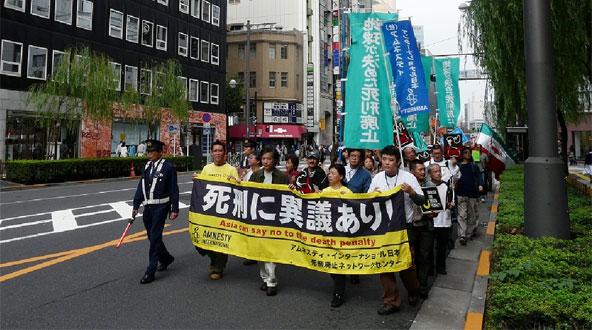
Article(s)
10.10.10 Looking back on the World Day in Asia
on 3 December 2010
The Anti-Death Penalty Asia Network rounds up reports from the main events organised across the Asia-Pacific region for World Day Against the Death Penalty on October 10.
2010
Australia
Bangladesh
India
Indonesia
Iran (Islamic Republic of)
Italy
Japan
Pakistan
Singapore
Terrorism
United States
Document(s)
The Next Frontier: National Development, Political Change, and the Death Penalty in Asia
By David T. Johnson / Franklin E. Zimring / Oxford University Press, on 1 January 2009
2009
Book
China
More details See the document
Authors David Johnson, an expert on law and society in Asia, and Franklin Zimring, a senior authority on capital punishment, utilize their research to identify the critical factors affecting the future of the death penalty in Asia. They found that when an authoritarian state experienced democratic reform, such as in Taiwan and South Korea, the rate of executions dropped sharply. Johnson and Zimring also found that politics, instead of culture or tradition, is the major obstacle to the end of capital punishment in Asia.
- Document type Book
- Countries list China
Document(s)
The Death Penlty In 2011: Year End Report
By Death Penalty Information Center / Richard C. Dieter, on 1 January 2011
2011
International law - Regional body
More details See the document
The number of new death sentences dropped dramatically in 2011, falling below 100 for the first time in the modern era of capital punishment. Executions also continued decline, while developments in a variety of states illustrated the growing discomfort that many Americans have with the death penalty.
- Document type International law - Regional body
- Themes list Trend Towards Abolition,
Document(s)
The Death Penalty for Drug Offences: Global Overview 2011. Shared responsibility and shared consequences.
By Patrick Gallahue / Harm Reduction International, on 1 January 2011
NGO report
More details See the document
The Global Overview 2011. It provides a country-by-country analysis of the death penalty for drugs, and is intended to inform policy-makers of the potential for change as well as to shed some light on the environments in which the international fight against illicit drugs is pursued.
- Document type NGO report
- Themes list Drug Offences,
Document(s)
Hands Off Cain 2011 Report
By HANDS OFF CAIN, on 1 January 2011
NGO report
More details See the document
Hands Off Cain 2011 Report. The worldwide trend towards abolition, underway for more than ten years, was again confirmed in 2010 and the first six months of 2011.
- Document type NGO report
- Themes list Trend Towards Abolition,
Document(s)
The Innocence Network Exonerations 2011
By The Innocence Network, on 1 January 2011
Working with...
More details See the document
21 people were exonerated by the Innocence Network in 2011. Proving their innocence took years of work by dedicated teams of lawyers and staffers. These 21 represent a small fraction of the thousands of people who are behind bard for crimes they didn’t commit.
- Document type Working with...
- Themes list Innocence,
Document(s)
Death Penalty Trends in Asia Have Possible Implications for China
By Dui Hua Human Rights Journal , on 1 January 2011
Article
More details See the document
This article analyses the latest controversy over the use of the death penalty that erupted not in mainland China but across the strait in Taiwan. In January, the defense ministry there was forced to issue a public apology for a wrongful execution in 1997, followed in early March by the execution of five prisoners without notifying their families.
- Document type Article
- Themes list Networks,
Document(s)
Going backwards The death penalty in Southeast Asia
By International Federation for Human Rights (FIDH), on 1 January 2016
2016
NGO report
More details See the document
Over the past year, Southeast Asia has witnessed significant setbacks with regard to the abolitionof the death penalty. Indonesia, Malaysia, and Singapore have all carried out executions. It isunknown whether any executions were carried out in Vietnam, where statistics on the deathpenalty continue to be classified as ‘state secrets.’ In the name of combating drug trafficking,Indonesian President Joko Widodo is rapidly becoming Southeast Asia’s top executioner. ThePhilippines, which effectively abolished the death penalty for all crimes in 2006, is consideringreinstating capital punishment as part of President Rodrigo Duterte’s ill-conceived and disastrous‘war on drugs.’
- Document type NGO report
- Themes list Country/Regional profiles,
Document(s)
Unfair trials report II: the death penalty is not the common value of Asia
By Taiwan Alliance to End the Death Penalty, on 1 January 2015
2015
Article
zh-hantMore details See the document
This report highlights the death penalty situation and executions in Asian countries between 2010 and 2013. It also gives an overview over the legal protection measures for the mentally impaired and intellectually disabled in Asian countries where the death penalty is used. Furthermore, we have listed Asian countries that have acceded to the ICCPR and its Second Optional Protocol. We have also collected excerpts from international human rights documents. By using these documents for mutual reference, death penalty activists in Asia will be able to get a more comprehensive picture of the use of the death penalty and executions in Asian countries.
- Document type Article
- Themes list International law, Public debate, Most Serious Crimes,
- Available languages 亞洲不公平審判報告 II : 死刑並非亞洲的共同價值
Document(s)
Living Under Sentence of Death
on 22 April 2022
2022
Academic report
NGO report
Bangladesh
Death Row Conditions
More details See the document
In 2019-20, The Department of Law at the University of Dhaka, in collaboration with the Bangladesh Legal Aid and Services Trust (BLAST) and The Death Penalty Project, conducted a study to investigate socio-economic characteristics and experiences of death row prisoners in Bangladesh.
Bangladesh continues to retain and implement the death penalty, with several executions taking place each year. Excluding laws relating to the defence forces and international crimes, there are currently 33 crimes punishable by death. 25 of these offences are non-lethal and arguably do not meet the threshold of the ‘most serious crimes’ under international law.
Inspired by similar studies in other countries, a pilot study was commissioned to examine the demographics and experiences of those sentenced to death. Consistent with those studies around the world, our findings evidence that the death penalty in Bangladesh is disproportionately used against the most vulnerable and marginalised sections of society.
72% of prisoners were classified as economically vulnerable
53% of prisoners were in low-paid work or unemployed
87% of prisoners had no qualifications beyond secondary school level
15% of prisoners had no formal education.
The study also raised serious concerns around the treatment of prisoners, the length of time prisoners spent in prison under the sentence of death and the integrity of criminal investigations and trial.
33% of prisoners’ families alleged their relative had been tortured in police custody, 5% suspected this and 15% refused to comment
60% of respondents were not satisfied with the trial process, with some claiming that the courts had failed to properly appreciate the evidence
On average it took over 10 years for death row cases to be disposed by the HCD (where sentences are confirmed). Prolonged time spent in isolation on death row, has been declared inhumane and degrading in many countries.
The sample consisted of 39 individuals on death row, evidence from their case files and face-to-face interviews with their families were conducted under rigorous ethical guidelines to reveal their profiles and experiences. Despite its small size, the sample is indicative of the general prison population allowing us to draw conclusions on possible trends.
- Document type Academic report / NGO report
- Countries list Bangladesh
- Themes list Death Row Conditions
Document(s)
File: Saudi Arabia in the World Day against the Death Penalty, execution of Civil Society
By European Saudi Organisation for Human Rights, on 1 January 2018
2018
Multimedia content
Saudi Arabia
More details See the document
Saudi Arabia uses the death penalty as an instrument against individuals, society and freedoms. It is used far away from any international laws and frameworks as it is applied sometimes on children. These practices have become an approach that includes numerous violations as well as denial of the right to life, such as arbitrary detention, torture and unfair trials. As the world revives the anti-death penalty day on October 10, the European Saudi organization for Human Rights (ESOHR) illuminates it through its figures, the issues it has documented and the campaigns it has led. Through the articles published ESOHR tries to show the usage of the death penalty by the Saudi government as a mean to achieve its goals and to impose silence.
- Document type Multimedia content
- Countries list Saudi Arabia
- Themes list Death Penalty, Country/Regional profiles,
Document(s)
Death Penalty in India: Annual Statistics Report 2023
By Project 39A, on 15 February 2024
2024
NGO report
India
More details See the document
Published in 2023.
This is the eighth edition of the Death Penalty in India: Annual Statistics Report. This annual publication presents changes in the death row population as well as political and legal developments in the administration of the death penalty in India each year. The statistics are compiled through a combination of data mining of court websites, media monitoring and Right to Information applications.
- Document type NGO report
- Countries list India
Document(s)
The Death Penalty in the Arab World 2011
By Alejandro Tagarro Cervantes / Amman Center for Human Rights Studies, on 1 January 2011
2011
NGO report
More details See the document
This annual report drafted by ACHRS aims to proportionate an analytical studio of the situation of the death penalty and capital punishment in the Arab World in 2011, and includes detailed information about the 21 countries which constitute the Arab World. It also contains tables and a conclusive reflection on the current state of capital punishment.
- Document type NGO report
- Themes list Country/Regional profiles,
Document(s)
World Coalition Strategic Plan 2023-2027
By World Coalition Against the Death Penalty, on 22 August 2023
2023
World Coalition
Trend Towards Abolition
frMore details Download [ pdf - 455 Ko ]
- Document type World Coalition
- Themes list Trend Towards Abolition
- Available languages Plan Stratégique 2023-2027 de la Coalition Mondiale
Document(s)
Worked to Death: A study on migrant workers and capital punishment
By Migrant Care and Reprieve, on 24 November 2021
2021
NGO report
Fair Trial
Indonesia
Legal Representation
Malaysia
Nigeria
Pakistan
Saudi Arabia
Women
More details See the document
Foreign nationals, and within this group migrant workers, are a population that disproportionately faces the death penalty around the world. The data and statistics gathered by Reprieve and Migrant CARE for this report show that migrant workers as a sub-set of the foreign national population are at grave risk of human rights violations related to the death penalty, including arbitrary deprivation of the right to life in the context of unlawful death sentences and executions.
This report focuses on: states that receive migrant workers (‘receiving states’), in particular the states that make up the Association of South East Asian Nations or ASEAN (‘South East Asian states’) and the Gulf Cooperation Council (‘Gulf states’), and on states from which migrant workers travel to work (‘sending states’).
- Document type NGO report
- Countries list Indonesia / Malaysia / Nigeria / Pakistan / Saudi Arabia
- Themes list Fair Trial / Legal Representation / Women

Member(s)
The American Constitution Society (ACS)
on 5 September 2022
The American Constitution Society (ACS) is a United States-based network of progressive lawyers, law students, judges, policymakers, legislators, and academics dedicated to realizing the promises of the U.S. Constitution by advancing and defending democracy, justice, equality, and liberty; securing a government that serves the public interest; and guarding against the abuse of law and the […]
2022
United States
Document(s)
2011 World Day Report
By World Coalition Against the Death Penalty, on 1 January 2011
2011
Campaigning
frMore details Download [ pdf - 1664 Ko ]
It presents the theme of 2011 World Day, facts on the death penalty and all the actions and media coveragefor the 20011 World Day on the inhumanity of the death penalty
- Document type Campaigning
- Themes list Cruel, Inhuman and Degrading Treatment and Punishment,
- Available languages Rapport Journée mondiale 2011
Document(s)
Deadly Injustice. Visualizing Executions in Iran 2011-2015
By Iran Human Rights (IHR), on 1 January 2015
2015
NGO report
More details See the document
On the occasion of the 13th World Day Against the Death Penalty, Iran Human Rights in collaboration with “Small media” published an overview of the IHR’s annual reports from 2011-2014 along with the first half of 2015. This report shows that the average daily number of executions have increase from under two executions each day in 2011-2014 to three daily executions in 2013. The report also highlights some of the victims of the Iranian authorities deadly injustice.
- Document type NGO report
- Themes list Drug Offences, Statistics, Country/Regional profiles,
Document(s)
Leaflet World Day 2011 on the inhumanity of the death penalty
By World Coalition Against the Death Penalty, on 1 January 2011
2011
Campaigning
frMore details Download [ pdf - 242 Ko ]
This information leaflet about the 2011 World Day on the inhumanity of the death penalty gives background information, 10 arguments to end the death penalty and 10 things you can do to abolish the death penalty.
- Document type Campaigning
- Themes list Networks,
- Available languages Brochure Journée mondiale 2011 : "La peine de mort est inhumaine"
Document(s)
Drug-related Offences, Criminal Justice Responses and the Use of the Death Penalty in South-East Asia
By Office of the United Nations High Commissioner for Human Rights, on 1 January 2019
2019
International law - United Nations
More details See the document
Most of the world’s countries or territories have either abolished the death penalty or no longer use it. More than half of those that retain the death penalty, of which many are in South-East Asia, do so for drug-related offences. Most prisoners on death row in South-East Asia have been convicted of drug-related offences, although law and practice vary considerably among countries that retain the death penalty.
- Document type International law - United Nations
- Themes list Death Penalty, Statistics,
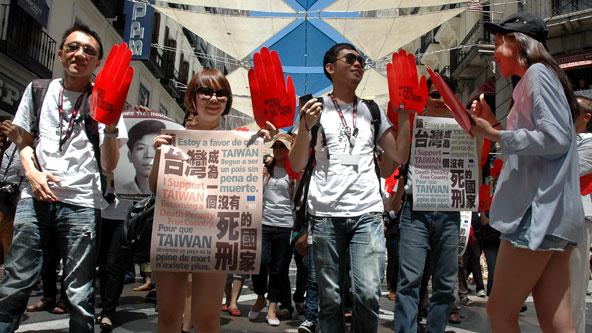
Article(s)
Asian progress paves the way for new strategies
By Thomas Hubert, on 20 June 2013
Although most executions continue to take place in Asia, their number is going down – and abolitionists are coming up with new ideas to bring about abolition.
2013
India
Japan
Malaysia
Mongolia
Moratorium
Singapore
Document(s)
Leaflet Asia 2008: it’s time to end executions
By World Coalition Against the Death Penalty, on 8 September 2020
2020
Academic report
frMore details Download [ pdf - 3410 Ko ]
This leaflet gives you information about the World Coalition’s demands in Asia. It aslo provides a summary of the situation of the death penalty in Asia.
- Document type Academic report
- Available languages Brochure Asie 2008 : Il est Temps d'Arreter les Exécutions

Article(s)
Philippines’ Major Setback as Abolitionist Leader in South-East Asia
By Dinda Royhan, on 23 January 2020
As a prominent leader in the campaign against death penalty in the South East Asia region for the last decade, Philippines’ reputation is endangered with President Duterte’s determination to reintroduce death penalty in the country. The country’s legislators are now on its second attempt to pass the bills.
2020
Philippines
Document(s)
2021 World Day Report
on 10 June 2022
2022
World Coalition
Women
frMore details Download [ pdf - 4154 Ko ]
On 10 October 2021, the World Coalition and abolitionists around the world celebrated the 19th World Day Against the Death Penalty (‘World Day’). Every year on World Day, the World Coalition highlights one problematic aspect of the Death Penalty. In 2021, the World Day explored the theme “Women sentenced to death, an invisible reality” to raise awareness on how the treatment of gender and gender-based inequalities create particularly precarious conditions for women sentenced to capital punishment. This report presents the activities organised for the 19th World Day and the media coverage it received.
- Document type World Coalition
- Themes list Women
- Available languages Rapport journée mondiale 2021
Document(s)
THE MOST IMPORTANT FACTS OF 2011 (and the first six months of 2012)
By HANDS OFF CAIN, on 8 September 2020
2020
NGO report
enMore details See the document
THE SITUATION TODAY The worldwide trend towards abolition, underway for more than ten years, was again confirmed in 2011 and the first six months of 2012. There are currently 155 Countries and territories that, to different extents, have decided to renounce the death penalty. Of these: 99 are totally abolitionist; 7 are abolitionist for ordinary crimes; 5 have a moratorium on executions in place and 44 are de facto abolitionist (i.e. Countries that have not carried out any executions for at least 10 years or Countries which have binding obligations not to use the death penalty).
- Document type NGO report
- Themes list Statistics,
- Available languages Italian : I FATTI PIÙ IMPORTANTI DEL 2011 (E DEI PRIMI SEI MESI DEL 2012)
Document(s)
Italian : I FATTI PIÙ IMPORTANTI DEL 2011 (E DEI PRIMI SEI MESI DEL 2012)
By HANDS OFF CAIN, on 8 September 2020
NGO report
enMore details See the document
L’evoluzione positiva verso l’abolizione della pena di morte in atto nel mondo da oltre dieci anni, si è confermata nel 2011 e anche nei primi sei mesi del 2012.I Paesi o i territori che hanno deciso di abolirla per legge o in pratica sono oggi 155. Di questi, i Paesi totalmente abolizionisti sono 99; gli abolizionisti per crimini ordinari sono 7; quelli che attuano una moratoria delle esecuzioni sono 5; i Paesi abolizionisti di fatto, che non eseguono sentenze capitali da oltre dieci anni o che si sono impegnati internazionalmente ad abolire la pena di morte, sono 44.
- Document type NGO report
- Themes list Statistics,
- Available languages THE MOST IMPORTANT FACTS OF 2011 (and the first six months of 2012)
Document(s)
Death sentences and executions in 2011
By Amnesty International, on 1 January 2012
2012
NGO report
enenfafrzh-hantesMore details See the document
Developments on the use of the death penalty in 2011 confirmed the global trend towards abolition. The number of countries that were known to have carried out death sentences decreased compared to the previous year, and overall, progress was recorded in all regions of the world. In this report, Amnesty International analyses some of the key developments in the worldwide application of the death penalty, citing figures it has gathered on the number of death sentences handed down and executions carried out during the year.
- Document type NGO report
- Themes list Statistics,
- Available languages Thai : สถานการณ์โทษประหาร และการประหารชีวิต ในปี 2554Korean : 연례사형현황 보고서 2011 사형선고와 사형집행اعدام و صدور حکم اعدام در سال2011Condamnations à mort et executions 2011國際特赦組織 全球死刑報告 2011Condenas a muerte y ejecuciones 2011
Document(s)
Efforts towards abolition of the death penalty: Challenges and prospects
By Death Penalty Research Unit (DPRU), University of Oxford, on 5 February 2024
2024
Academic Article
Trend Towards Abolition
More details See the document
Published in December 2023.
This paper reflects on the role of international human rights treaties in promoting universal abolition and progressive restriction of the death penalty. It suggests that over the past quarter of a century a ‘new human rights dynamic’ has aimed to generate universal acceptance that however it is administered, the death penalty violates the human rights of all citizens exposed to it. Nevertheless, defences of capital punishment based on principles of national sovereignty are engrained in some parts of the world, particularly in Asia and the Middle East. The human rights project struggles to make inroads into such jurisdictions where political will is opposed to abolition, and trenchant protection of sovereignty threatens the very universality of these rights.
- Document type Academic Article
- Themes list Trend Towards Abolition
Document(s)
MVFHR Asia Speech Tour in Korea & Japan
By Taiwan Alliance to End the Death Penalty / Murder Victims' Families for Human Rights / YouTube, on 8 September 2020
2020
Academic report
Japan
enMore details See the document
MVFHR is an organization formed by a group of victim’s family members. They have traveled across the ocean all the way down to Korea, Japan, and Taiwan to share their stories and views on the death penalty with the local victim’s family members, attorneys, and human rights organizations.
- Document type Academic report
- Countries list Japan
- Themes list Murder Victims' Families,
- Available languages MVFHR 飄洋過海來看你:看見被害人 20100704 台北信義誠品

Member(s)
Free Mumia! French Support Group
on 30 April 2020
Founded in 1995, the French collective “Libérons Mumia” brings together about a hundred organisations and public authorities: human rights associations, trade unions, political parties, local and regional collectives and local authorities. His objective is to obtain a new trial allowing the Black American journalist Mumia to defend his innocence and regain his freedom. Mumia Abu-Jamal […]
2020
France

Member(s)
League of Women Lawyers of Tajikistan
on 30 April 2020
The League of Women Lawyers of Tajikistan aims at improving the legal consciousness of citizens of the Republic of Tajikistan, the protection of civil, social, economic and cultural rights of women in Tajikistan, gender equality, improving women’s status in society lawyer, as well as assisting in the preparation of legal training among young girls. League […]
Tajikistan
Document(s)
Iraq – Committee Against Torture – Death Penalty – March 2022
on 18 March 2022
2022
NGO report
World Coalition
Iraq
More details Download [ pdf - 250 Ko ]
This report provides an update to the coauthors’ report at the List of issues stage and responds to the State party’s responses to the Committee’s questions in the List of issues that touch on the death penalty.
- Document type NGO report / World Coalition
- Countries list Iraq
Document(s)
More Indicators of the Falling Support for the Death Penalty
By Talia Roitberg Harmon and Michael L. Radelet, California Western International Law Journal , on 1 February 2024
2024
Academic Article
United States
More details See the document
Published on October 12, 2023.
In the seminal Furman v. Georgia case from 1972, the U.S. Supreme Court (in effect) invalidated all death penalty statutes then inforce in American jurisdictions. After many states went back to their legislative drawing boards, some of the revised statutes were approved by the Court in 1976. At that time, Gallup found that 66 percent of the American public supported the death penalty, while 26 percent stood opposed. While support grew to 80 percent in 1994, a recent Gallup Poll from October 2022 shows that this figure has dropped to 55 percent. Recently, only 36 percent of Americans still support the death penalty given the alternative punishment of life imprisonment.
- Document type Academic Article
- Countries list United States
Article(s)
World Coalition calls on Canada to keep up its efforts against the death penalty
on 10 March 2009
The World Coalition has sent a letter to Canadian Prime Minister Stephen Harper, asking him to “protect its nationals sentenced to death abroad, whether it is in a democratic country or not”.
2009
Canada
Canada
Clemency
United States
Document(s)
Executing the Insane Is Against the Law of the Land. So Why Do We Keep Doing It?
By Stephanie Mencimer / Mother Jones, on 1 January 2015
2015
Article
United States
More details See the document
A recent article in Mother Jones examines lingering questions in the determination of which inmates are exempt from execution because of mental incompetency. In 1986, the U.S. Supreme Court ruled in Ford v. Wainwright that a person could not be executed if he or she was “unaware of the punishment they’re about to suffer and why they are to suffer it.” The 2007 ruling in Panetti v. Quarterman updated that decision, with Justice Anthony Kennedy writing, “A prisoner’s awareness of the State’s rationale for an execution is not the same as a rational understanding of it.” Scott Panetti (pictured), the inmate involved in the 2007 case, knew that the state of Texas planned to execute him for the murder of his in-laws, but also sincerely believed that he was at the center of a struggle between God and Satan and was being executed to stop him from preaching the Gospel.
- Document type Article
- Countries list United States
- Themes list Intellectual Disability,

Article(s)
Improved access to unique global death penalty library
By Thomas Hubert, on 10 July 2014
The World Coalition has redesigned its online library to help visitors find the documents they need in its multilingual database of resources and campaigning tools on capital punishment.
2014
Clemency
Cruel, Inhuman and Degrading Treatment and Punishment
Death Row Conditions
Drug Offenses
Fair Trial
Innocence
Intellectual Disability
Juveniles
Legal Representation
Mental Illness
Moratorium
Murder Victims' Families
Public Opinion
Terrorism
Women
Page(s)
Library
on 22 June 2020
The online library contains over 2,000 resources on the death penalty identified by the World Coalition since the beginning of the 21st century, in over 15 languages. Except for documents published by the World Coalition, the library links to external resources, which do not necessarily reflect the views of the World Coalition. To report a […]
2020
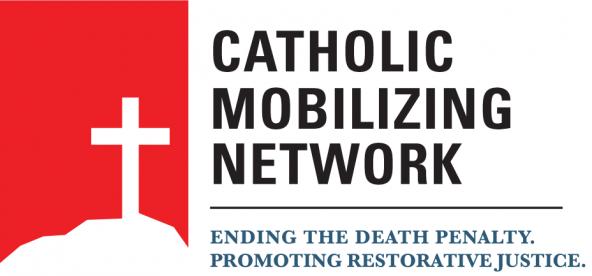
Member(s)
Catholic Mobilizing Network
on 30 April 2020
Catholic Mobilizing Network is a national organization working in close collaboration with the United States Conference of Catholic Bishops (USCCB) and living the mission of the Congregation of St. Joseph. Catholic Mobilizing Network (CMN) proclaims the Church’s pro-life teaching and prepares Catholics for informed involvement in the public debate to end the death penalty and promote […]
2020
United States
Document(s)
Maldives – Committee Against Torture (LOIPR) – Death Penalty – June 2022
By The Maldivian Democracy Network (MDN) , on 21 July 2022
2022
NGO report
World Coalition
Cruel, Inhuman and Degrading Treatment and Punishment
Maldives
More details Download [ pdf - 1443 Ko ]
This report addresses the Maldives’ compliance with its human rights obligations with respect to the death penalty. Despite its long-standing, de facto moratorium on executions, the Maldives sentenced two people to death in 2019, after sentencing no one to death in 2018.[1] At the end of 2019, there were 19 people on death row in the Maldives – three of whom had exhausted their appeals and five of whom were juveniles when the crime was committed.[2] The Maldives sentenced another individual to death in 2022, which represented the first time the country sentenced a foreign national to death.[3] The continued use of the death penalty in sentencing is particularly concerning given evidence of due process violations, including the use of torture to obtain confessions, the lack of effective and accessible complaint mechanisms for detained individuals, the lack of an independent judiciary, and the use of the death penalty as a sentence for crimes committed by juveniles.
- Document type NGO report / World Coalition
- Countries list Maldives
- Themes list Cruel, Inhuman and Degrading Treatment and Punishment
Document(s)
Intiatives World Day 2005
By World coalition against the death penalty , on 10 October 2005
2005
Campaigning
Trend Towards Abolition
frMore details See the document
Intiatives World Day 2005
- Document type Campaigning
- Themes list Trend Towards Abolition
- Available languages Initiatives journée mondiale 2005
Document(s)
Abolition of the Death Penalty in the Eastern Caribbean and Barbados
on 15 December 2020
2020
Lobbying
Barbados
Trend Towards Abolition
More details Download [ pdf - 2611 Ko ]
Greater Caribbean for Life has launched its educational toolkit to assist activists and organisations as they work toward abolishing the death penalty in the Greater Caribbean. The production of this toolkit forms part of GCL’s activities under its EU partnered project to educate on death penalty abolition in the Eastern Caribbean and Barbados.
The launch of the toolkit is timely as a few of these target countries recently voted against adopting the UN Moratorium on the use of the death penalty and countries that had previously chosen to abstain have now firmly voted against the resolution.
GCL members condemn the rise of violent crime in our region and express solidarity and compassion with the victims of crime, however, we reject the notion that capital punishment will act as a deterrent or foster respect for life in our communities.
It is our hope that this toolkit will assist in promoting respect for the right to life for all human beings in the Caribbean region.
- Document type Lobbying
- Countries list Barbados
- Themes list Trend Towards Abolition
PHIL_2_page_handout_EN
on 10 August 2021
2021

Article(s)
Belarus ends more than one year without execution
By Daria Gribanova, on 14 April 2014
Despite an execution this month, Amnesty International’s latest annual report on the death penalty shows Belarus did not kill any prisoner last year, meaning Europe and Central Asia was execution-free for the first time since 2009. This achievement bolsters local abolitionists – despite the risks they face in their activism.
2014
Belarus
Belarus
Moratorium
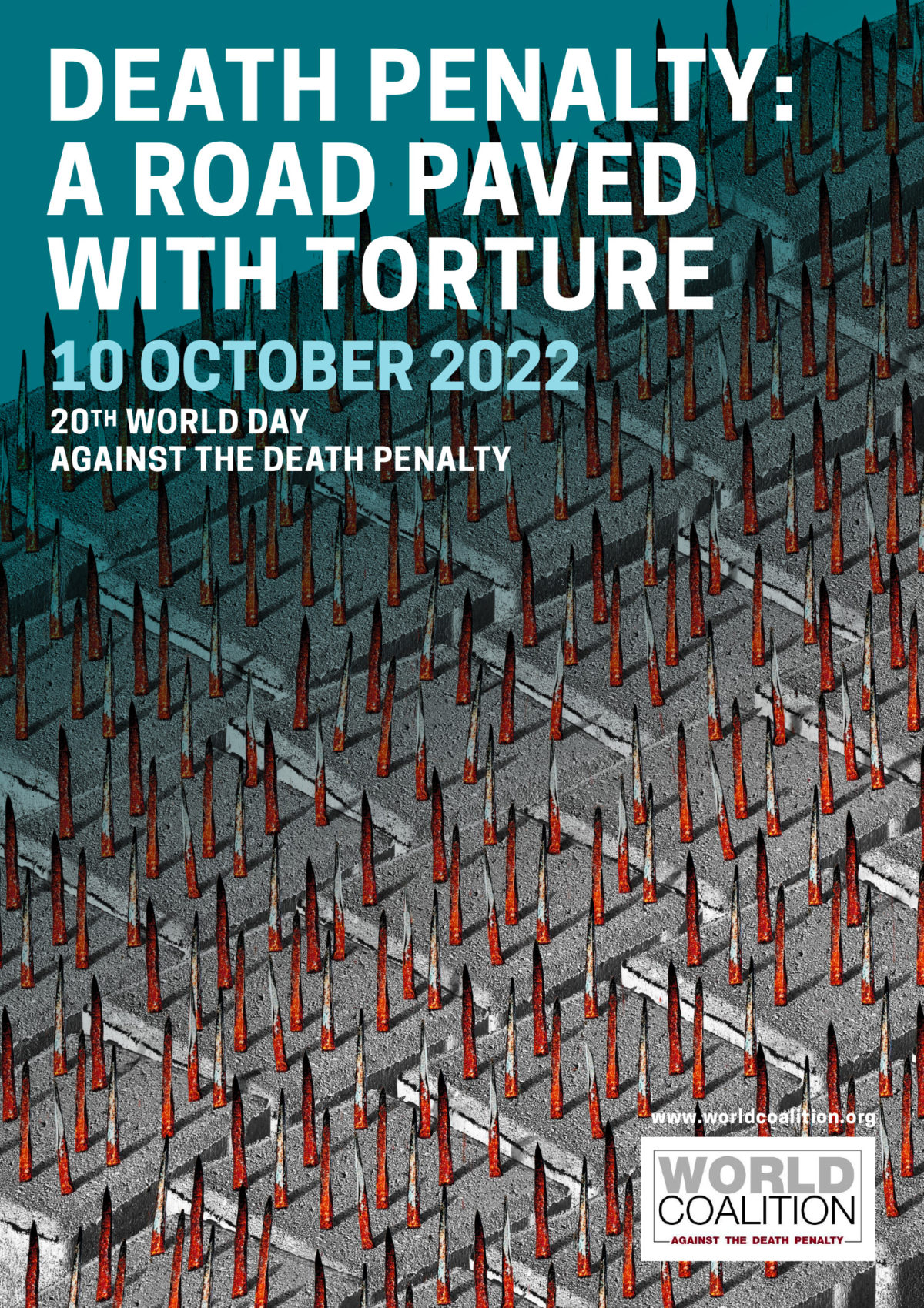
20th World Day Against the Death Penalty – Death penalty: a road paved with torture
on 10 June 2022
As the 20th World Day Against the Death Penalty is marked around the world, now is a time to consider and celebrate the gains the abolitionist movement has made over the past 20 years. Now, more than ever, abolitionist actors need to continue working towards the complete abolition of the death penalty worldwide, for all […]
2022
Cruel, Inhuman and Degrading Treatment and Punishment
Death Row Conditions

22nd World Day Against the Death Penalty – The death penalty protects no one.
on 12 June 2024
Observed every 10 October, the World Day Against the Death Penalty unifies the global abolitionist movement and mobilizes civil society, political leaders, lawyers, public opinion and more to support the call for the universal abolition of capital punishment.
2024
Public Opinion
Trend Towards Abolition

21st World Day Against the Death Penalty – The death penalty: An irreversible torture
on 12 June 2023
2023
Cruel, Inhuman and Degrading Treatment and Punishment
Death Row Conditions
prison-conditions-in-jamaica-2011
on 19 April 2022
2022

Article(s)
European Union tightens rules on export of death drug
By Emile Carreau, on 20 January 2012
On 20 December 2011 the European Commission added sodium thiopental to the list of goods that are subject to tight export controls to ensure they do not find their way into overseas death chambers.
2012
Cruel, Inhuman and Degrading Treatment and Punishment
Denmark
United States
Document(s)
The State of Criminal Justice 2011
By American Bar Association / Ronald Tabak, on 1 January 2011
2011
NGO report
More details See the document
The State of Criminal Justice 2011 contains a chapter on death penalty by Ronald Tabak (Ch. 19). Tabak explores legislative changes, the declining use of the death penalty, important Supreme Court decisions and the adequacy of representation.
- Document type NGO report
Document(s)
Annual Report: Death Penalty in Iran 2011
By Iran Human Rights (IHR), on 1 January 2011
NGO report
enfafrfafrMore details See the document
The execution wave that began after the June 2009 post-election protests in Iran continues with high frequency. According to the present report, the execution figure in 2011 is currently the highest since the beginning of 1990’s.
- Document type NGO report
- Themes list Minorities, Religion , Country/Regional profiles,
- Available languages Annual Report: Death Penalty in Iran 2012گزارش سالانھ مجازات اعدام در ایران سال ۲۱۰۲Rapport Annuel sur la peine de mort en Iran 2012گزارش سالانه اعدام در ایرا سال ۱۱۲۲Rapport annuel sur la peine de mort en Iran 2011
Document(s)
Confronting Capital Punishment in Asia: Human Rights, Politics and Public Opinion
By Roger Hood / Oxford University Press / Surya Deva, on 1 January 2013
2013
Book
More details See the document
This book shows that the majority of Asian countries have been particularly resistant to the abolitionist movement and tardy in accepting their responsibility to uphold the safeguards. The essays contained in this volume provide an in-depth analysis of changes in the scope and application of the death penalty in Asia with a focus on China, India, Japan, and Singapore. They explain the extent to which these nations still fail to accept capital punishment as a human rights issue, identify impediments to reform, and explore the prospects that Asian countries will eventually embrace the goal of worldwide abolition of capital punishment.
- Document type Book
- Themes list Trend Towards Abolition, Death Penalty, Country/Regional profiles,
Article(s)
Activists oppose the death penalty across Asia
on 30 October 2008
Although European activists were slow to take action on World Day Against the Death Penalty, their Asian counterparts showed their strength, especially in the World Coalition’s target countries.
2008
India
Japan
Mongolia
Pakistan
Public Opinion
Republic of Korea
Taiwan
Article(s)
Japan executions slammed
on 30 July 2009
The Japanese authorities hanged three death row inmates on July 28, attracting criticism throughout Asia and beyond.
2009
Japan
Document(s)
World Report 2011
By Human Rights Watch, on 1 January 2011
2011
NGO report
More details See the document
This report is does not specificly concern the death penalty but examines the use of the death penalty on juveniles and those with mental illness in many retentionist countries. It contains information gathered in 2009.
- Document type NGO report
- Themes list Juveniles, Mental Illness,
Document(s)
How Families of Murder Victims Feel Following the Execution of Their Loved One’s Murderer: A Content Analysis of Newspaper Reports of Executions from 2006-2011
By Journal of Qualitative Criminal Justice and Criminology, on 1 January 2013
2013
Working with...
More details See the document
By Corey Burton and Richard Tewksbury
- Document type Working with...
- Themes list Public debate, Murder Victims' Families, Death Penalty, Country/Regional profiles,
Document(s)
Korean : 연례사형현황 보고서 2011 사형선고와 사형집행
By Amnesty International / 국제앰네스티는, on 8 September 2020
2020
NGO report
enenfafrzh-hantesMore details See the document
2011년 세계 사형현황은 전세계적인 사형폐지 움직임을 잘 나타내주고 있다. 사형을 적용하는 국가의 수는 예년에 비해 더 줄어들었으며 세계 모든 지역에서 사형폐지를 향한 움직임이 있었다.미국은 G8 국가들 중 유일하게 사형을 집행했지만 일리노이 주(州)가 16번째 사형폐지주가 되었고 오레곤 주지사가 사형집행모라토리엄을 선포하는 등 일정 부분에서 발전이 있었다.
- Document type NGO report
- Themes list Trend Towards Abolition, Statistics,
- Available languages Thai : สถานการณ์โทษประหาร และการประหารชีวิต ในปี 2554Death sentences and executions in 2011اعدام و صدور حکم اعدام در سال2011Condamnations à mort et executions 2011國際特赦組織 全球死刑報告 2011Condenas a muerte y ejecuciones 2011
Document(s)
Debunking the deterrence theory
By World coalition against the death penalty, on 9 July 2024
2024
Campaigning
World Coalition
frMore details Download [ pdf - 593 Ko ]
- Document type Campaigning / World Coalition
- Available languages La théorie de la dissuasion démystifiée

Member(s)
Academic University for Non-Violence and Human Rights – AUNOHR
on 14 July 2023
AUNOHR, www.aunohr.edu.lb, the Academic University for Non-Violence and Human Rights, is a non-profit independent institution of higher education, first-of-its-kind in Lebanon and the region and unique worldwide. Founded in 2014 after a pilot project (2009-2011), its main objectives are both: academic professionalism and for social change, starting with the personal development of every student. The […]
2023
Lebanon

Article(s)
The Sunny Center
By Jessica Corredor, on 30 July 2018
“Extraordinary things can happen to ordinary people and still be OK »The Sunny Center is a place like no other place in the world. Perched on the top of a hill, it is surrounded by lakes and hills that multiply as far as the eye can see. The landscape is breath-taking. But the landscape is nothing compared to the founders of the Sunny Center. Sunny Jacobs, 72, and Peter Pringle, soon 80, began welcoming innocent people into their homes in 2011.
2018
Death Row Conditions
Innocence
Ireland
Document(s)
Qatar – Human Rights Committee – Death Penalty – January 2022
on 31 January 2022
2022
NGO report
World Coalition
Qatar
More details Download [ pdf - 236 Ko ]
Qatar had been maintaining a de facto moratorium on executions since 2000, but courts continued to sentence people to death. In 2020, however, Qatar executed a Nepali migrant worker by firing squad. Qatar’s death penalty practices are not in compliance with the Covenant. Qatar does not limit the death penalty to the most serious crimes, it is not taking steps toward a de jure moratorium on executions or ratification of the Second Optional Protocol, and it does not ensure that defendants in capital cases have a fair trial. Recent history suggests that a migrant worker may be more likely to be sentenced to death and executed for killing a Qatari national, as opposed to a non-citizen. Migrant workers are particularly vulnerable in the context of the country’s criminal legal system.
- Document type NGO report / World Coalition
- Countries list Qatar
Document(s)
Keep the Death Penalty Abolished in the Philippines (Waray)
By World Coalition Against Death Penalty, on 23 March 2021
2021
Campaigning
Drug Offenses
Philippines
More details Download [ pdf - 1057 Ko ]
This brochure was developed by the World Coalition Against the Death Penalty with the Commission on the Human Rights in the Philippines. It explains why the death penalty risks returning in the Philippines and the reasons against its resurgence. It is available in 11 languages of the Philippines, plus French and English.
- Document type Campaigning
- Countries list Philippines
- Themes list Drug Offenses
Document(s)
Keep the Death Penalty Abolished in the Philippines (Hiligaynon)
By World Coalition Against Death Penalty, on 23 March 2021
Campaigning
Drug Offenses
Philippines
More details Download [ pdf - 2538 Ko ]
This brochure was developed by the World Coalition Against the Death Penalty with the Commission on the Human Rights in the Philippines. It explains why the death penalty risks returning in the Philippines and the reasons against its resurgence. It is available in 11 languages of the Philippines, plus French and English.
- Document type Campaigning
- Countries list Philippines
- Themes list Drug Offenses
Document(s)
Keep the Death Penalty Abolished in the Philippines (English)
By World Coalition Against Death Penalty, on 23 March 2021
Campaigning
Drug Offenses
Philippines
frMore details Download [ pdf - 7827 Ko ]
This brochure was developed by the World Coalition Against the Death Penalty with the Commission on the Human Rights in the Philippines. It explains why the death penalty risks returning in the Philippines and the reasons against its resurgence. It is available in 11 languages of the Philippines, plus French and English.
- Document type Campaigning
- Countries list Philippines
- Themes list Drug Offenses
- Available languages Maintenir l'abolition de la peine de mort aux Philippines (Français)
Document(s)
Keep the Death Penalty Abolished in the Philippines (Ilokano)
By World Coalition Against Death Penalty, on 23 March 2021
Campaigning
Drug Offenses
Philippines
More details Download [ pdf - 2550 Ko ]
This brochure was developed by the World Coalition Against the Death Penalty with the Commission on the Human Rights in the Philippines. It explains why the death penalty risks returning in the Philippines and the reasons against its resurgence. It is available in 11 languages of the Philippines, plus French and English.
- Document type Campaigning
- Countries list Philippines
- Themes list Drug Offenses
Document(s)
Keep the Death Penalty Abolished in the Philippines (Cebuano)
By World Coalition Against Death Penalty, on 23 March 2021
Campaigning
Drug Offenses
Philippines
More details Download [ pdf - 2567 Ko ]
This brochure was developed by the World Coalition Against the Death Penalty with the Commission on the Human Rights in the Philippines. It explains why the death penalty risks returning in the Philippines and the reasons against its resurgence. It is available in 11 languages of the Philippines, plus French and English.
- Document type Campaigning
- Countries list Philippines
- Themes list Drug Offenses
Document(s)
Keep the Death Penalty Abolished in the Philippines (Kapampangan)
By World Coalition Against Death Penalty, on 23 March 2021
Campaigning
Drug Offenses
Philippines
More details Download [ pdf - 731 Ko ]
This brochure was developed by the World Coalition Against the Death Penalty with the Commission on the Human Rights in the Philippines. It explains why the death penalty risks returning in the Philippines and the reasons against its resurgence. It is available in 11 languages of the Philippines, plus French and English.
- Document type Campaigning
- Countries list Philippines
- Themes list Drug Offenses
Document(s)
Keep the Death Penalty Abolished in the Philippines (Tausug)
By World Coalition Against Death Penalty, on 23 March 2021
Campaigning
Drug Offenses
Philippines
More details Download [ pdf - 2595 Ko ]
This brochure was developed by the World Coalition Against the Death Penalty with the Commission on the Human Rights in the Philippines. It explains why the death penalty risks returning in the Philippines and the reasons against its resurgence. It is available in 11 languages of the Philippines, plus French and English.
- Document type Campaigning
- Countries list Philippines
- Themes list Drug Offenses
Document(s)
Keep the Death Penalty Abolished in the Philippines (Tagalog)
By World Coalition Against Death Penalty, on 23 March 2021
Campaigning
Drug Offenses
Philippines
More details Download [ pdf - 2519 Ko ]
This brochure was developed by the World Coalition Against the Death Penalty with the Commission on the Human Rights in the Philippines. It explains why the death penalty risks returning in the Philippines and the reasons against its resurgence. It is available in 11 languages of the Philippines, plus French and English.
- Document type Campaigning
- Countries list Philippines
- Themes list Drug Offenses
Document(s)
Keep the Death Penalty Abolished in the Philippines (Marano)
By World Coalition Against Death Penalty, on 23 March 2021
Campaigning
Drug Offenses
Philippines
More details Download [ pdf - 1410 Ko ]
This brochure was developed by the World Coalition Against the Death Penalty with the Commission on the Human Rights in the Philippines. It explains why the death penalty risks returning in the Philippines and the reasons against its resurgence. It is available in 11 languages of the Philippines, plus French and English.
- Document type Campaigning
- Countries list Philippines
- Themes list Drug Offenses
Document(s)
Keep the Death Penalty Abolished in the Philippines (Bicolano)
By World Coalition Against Death Penalty, on 23 March 2021
Campaigning
Drug Offenses
Philippines
More details Download [ pdf - 2584 Ko ]
This brochure was developed by the World Coalition Against the Death Penalty with the Commission on the Human Rights in the Philippines. It explains why the death penalty risks returning in the Philippines and the reasons against its resurgence. It is available in 11 languages of the Philippines, plus French and English.
- Document type Campaigning
- Countries list Philippines
- Themes list Drug Offenses
Document(s)
Keep the Death Penalty Abolished in the Philippines (Pangasinense)
By World Coalition Against Death Penalty, on 23 March 2021
Campaigning
Drug Offenses
Philippines
More details Download [ pdf - 1042 Ko ]
This brochure was developed by the World Coalition Against the Death Penalty with the Commission on the Human Rights in the Philippines. It explains why the death penalty risks returning in the Philippines and the reasons against its resurgence. It is available in 11 languages of the Philippines, plus French and English.
- Document type Campaigning
- Countries list Philippines
- Themes list Drug Offenses
Article(s)
State-sponsored report finds California’s death penalty is “dysfunctional”
on 9 July 2008
A recent report from a far-reaching commission established by the Californian senate on the administration of capital punishment in the state concluded that “the system is broken”.
2008
Innocence
United States
Article(s)
World Day campaign launched!
on 13 August 2007
The countdown to the fifth World Day Against the Death Penalty on October 10 has begun. It will focus on the proposed resolution against capital punishment to be discussed in the UN this autumn.
2007
Moratorium
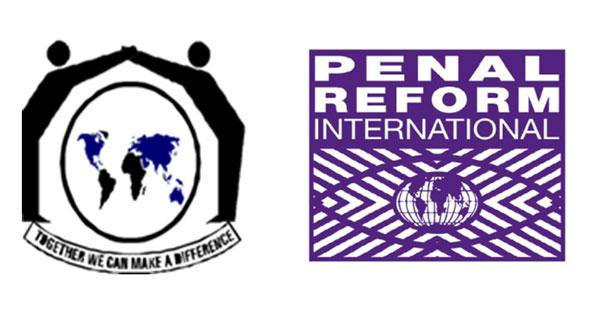
Article(s)
Progressive abolition of the death penalty and alternative sanctions
By PRI - FHRI, on 15 February 2013
World Coalition member organisations PRI and FHRI launch a small grants programme for local NGOs on the abolition of the death penalty and humane alternative sanctions in nine countries.
2013
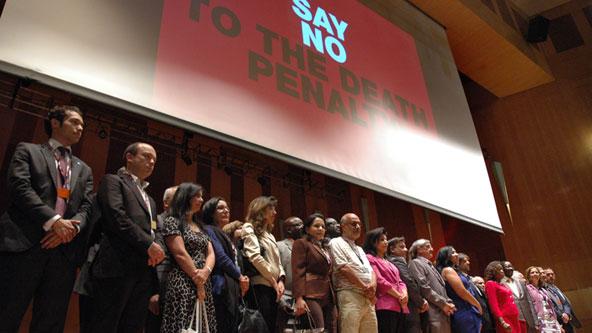
Article(s)
World Congress Against the Death Penalty
By Thomas Hubert & Tiziana Trotta, on 12 June 2013
The World Congress is taking place in Madrid between 12-15 June 2013. During three days, it unites members of international civil society, politicians, and legal experts to elaborate abolitionist strategies for the years to come at the national, regional, and international levels, and to send out a clear message to the world: that universal abolition is essential for a world where progress and justice must prevail.
2013
Spain
Article(s)
California Democratic Party endorses abolition of the death penalty
on 12 May 2010
One of the two main political parties in the largest US State has taken a formal stance against capital punishment – with help from local abolitionist organisations.
2010
Public Opinion
United States
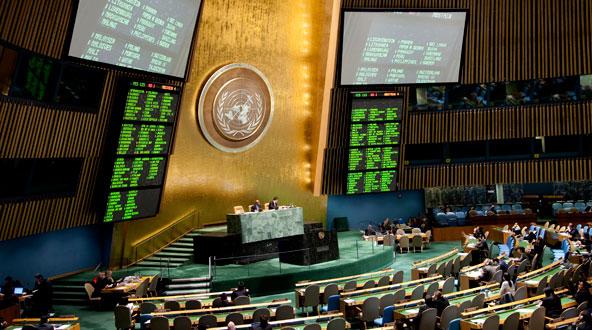
Article(s)
How to work with international bodies?
By Maria Donatelli, on 10 June 2013
The World Coalition is taking part in a workshop on mutual work relationships between international organisations and civil society at the 5th World Congress Against the Death Penalty. Here are tips for activists who would like to work with UN and regional bodies.
2013
Page(s)
Resources
on 22 June 2020
2020

Article(s)
« A new Gambia » welcomes the 61st session of the ACHPR
By FIACAT and World Coalition against the Death Penalty, on 21 November 2017
From November 1st to November 15, 2017, the 61st session of the African Commission on Human and Peoples’ Rights, as well as the NGO Forum, took place in Banjul, Gambia. During the opening session, the President of The Gambia, Adama Barrow, confirmed the “New Gambia’s commitment” to human rights.
2017
Gambia

